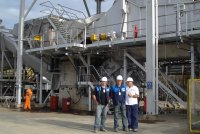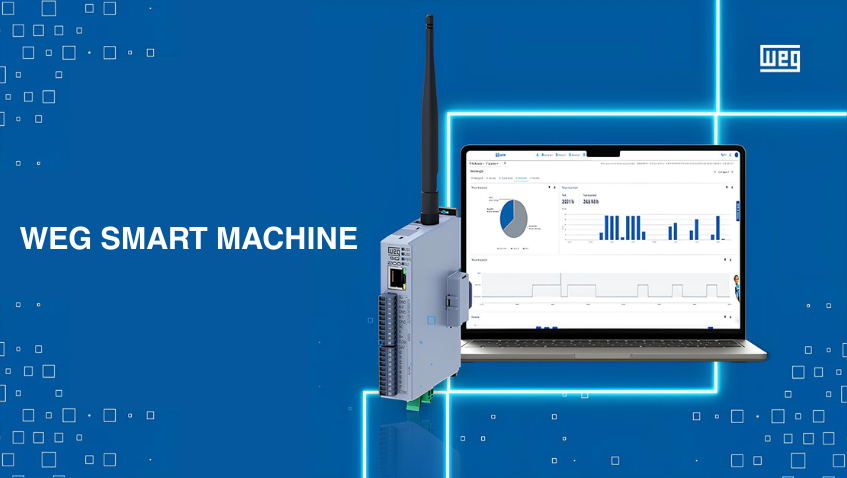With 220 companies in the industry, and an area of 2-million hectares under cultivation, Brazil is the fourth largest producer of cellulose worldwide: its output of 12.7- thousand tons a year putting it behind only the US, China and Canada. However, output in Brazil is set to change this situation; recent reports from the Brazilian Association of Paper and Cellulose show that over the last 10- years investments in the sector have totaled some US$ 12bn, and are set to increase further.
To achieve its ambitious output growth, the Brazilian cellulose sector is placing heavy reliance on technology and innovation. An example is Veracel Cellulose, an integrated agro-industrial project which covers all the production phases of cellulose – from the planting to the delivery of the end product. In June 2009, the company, headquartered in Eunápolis in the state of Bahia, started up a wood chipper line, the Horizontal Wood Chipper HHQ™, which is the largest in the world, providing the capacity to process 400- cubic meters of wood/hr.
Supplied by Andritz, a world leader in systems and services for paper and cellulose industries, the Horizontal Wood Chipper HHQ™ integrates four WEG medium voltage motors (400 kW, 4- poles), operating in heavy duty mode to ensure the supply of wood chips for the production of cellulose; and also to generate biomass, which is commonly used as source of energy. To enhance reliability of these motors, WEG created a systematic Commissioning and Start Up procedure via Smart phone. This gives field professionals immediate access to all the information they require. The data itself is also automatically transmitted to WEG, and this means faster solutions to potential problems.
The supply of new medium voltage machines for the new chipper line means that practically all of the motors used in the productive process at Veracel are WEG: this was one of the decisive factors for Veracel at the time of choosing the supplier for the new equipment. The new line itself has brought real benefits: it has eliminated a bottleneck in the production of wood chips for cellulose, and provided environmental and economic gains for the company with the generation of surplus energy. In addition, it has released operational availability of the other two lines used in the production process, which is important for general maintenance purposes.
The beginning of the process
The wood chipper is at the beginning of the productive process for cellulose. It transforms the trunks of the Eucalyptus and Pine trees - already shredded - into wood chips of several sizes. That is, the whole trunk goes inside the equipment and comes out chipped. There is a high demand for very powerful motors during this stage. Each of the four WEG motors of the Veracel wood chipper have 400 kW – around a total 2,200 HP. An economy car, for example, has a engine of around 70 HP.
The wood chip is taken to the digester where it is cooked with chemical products at high temperature and pressure. The result is cellulose pulp, which is then washed and separated. At this stage, the pulp, which is brown, may or may not be bleached. It depends on what it’ll be used for. Then, it is dried and separated into bales, only then is it ready for the paper machine.
Pine trees, which have long fibers, are used to make more resistant papers, such as those used for packaging. Eucalyptus, in contrast, has shorter fibers, and is used to make disposable or writing paper.
WEG Integral to the complete process
WEG offers solutions for all processes in the paper and cellulose industry. This includes transformers, motors, generators, driving and control products (contactors, circuit breakers, switches, relays etc), drives (frequency inverters, soft-starters, servo drives etc), electrical panels and automation, and the paints used to coat equipment, tanks and metallic structures.
WEG also offers solutions for independent power generation from biomass: in this case, wood. These solutions are realized in the supply of integrated electrical solutions and Turn-Key packages which include - in addition to WEG products and services - design, electromechanical installation materials in the field, and installation. WEG’s wide network of distributors and regional servicing centers meets the requirements for parts and spares, and offers technical support for the products supplied.






